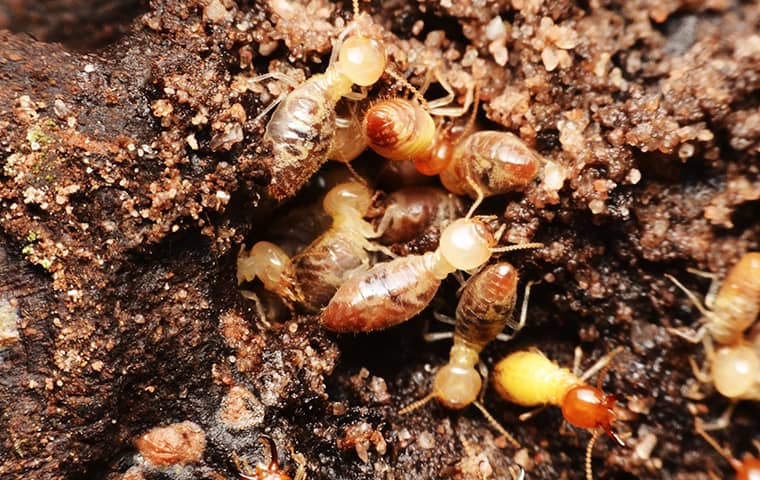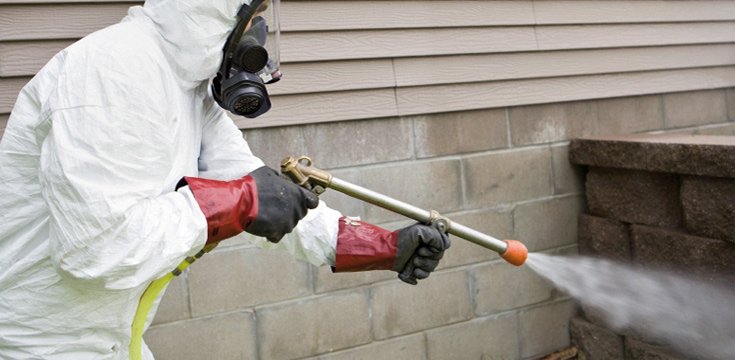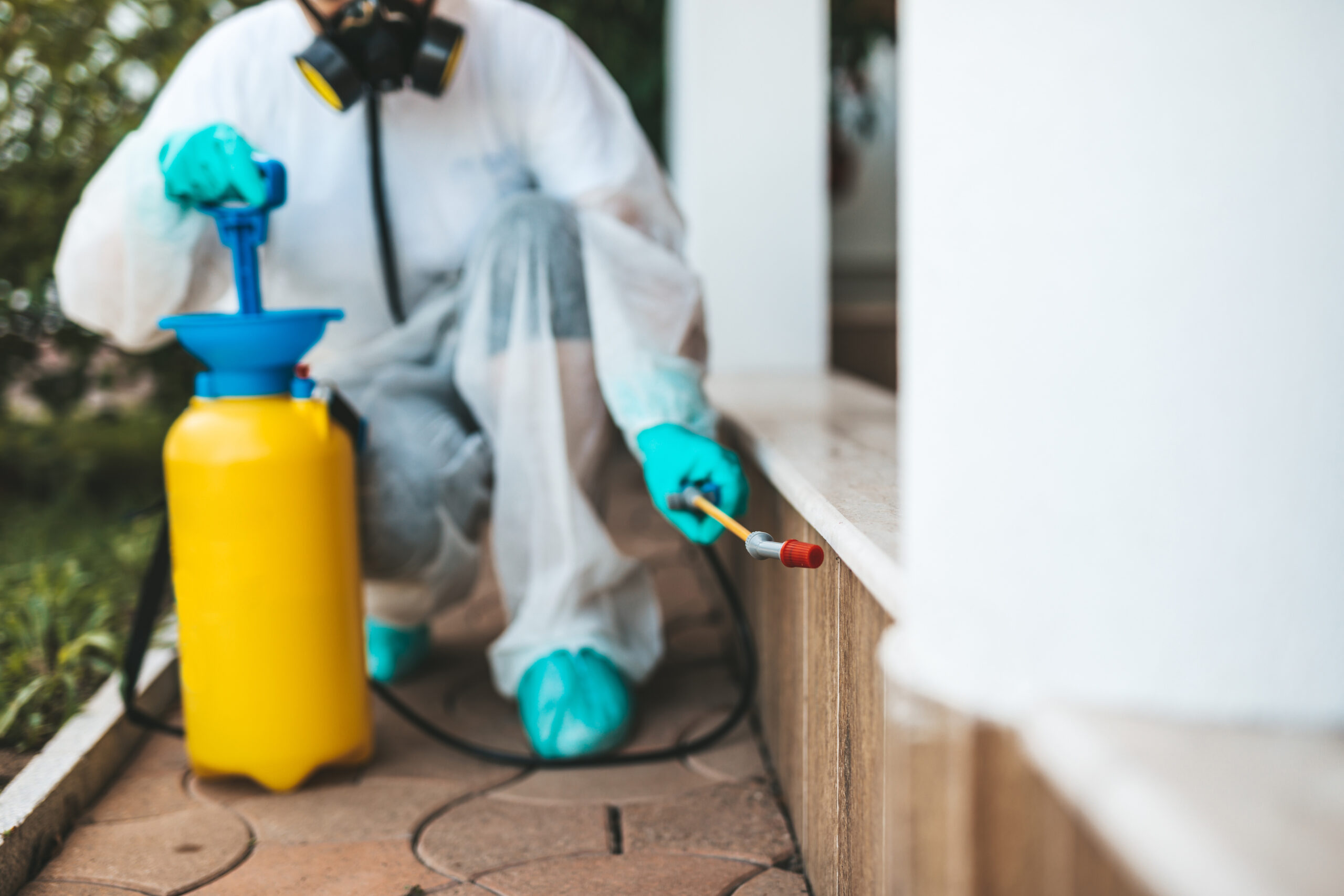Ecological Impact of Insect Control: Harmonizing Efficiency With Sustainability
The ecological impact of bug control is a crucial concern that needs a delicate equilibrium between achieving performance in guaranteeing and managing pests sustainability of our communities. As we aim to safeguard our crops, homes, and health from the threats posed by insects, the techniques we use can inadvertently damage the atmosphere. From making use of harmful chemicals that seep right into our soil and water to the unplanned effects on non-target types, the effects of standard parasite control techniques are far-ranging. However, there are arising techniques that supply hope for a much more sustainable strategy to pest management. These remedies not just goal to resolve the immediate insect troubles yet additionally take into consideration the long-lasting wellness of our planet.
Dangerous Chemicals in Bug Control
The application of harmful chemicals in pest control poses significant environmental and health risks that require mindful consideration and mitigation methods. Herbicides, chemicals, and insecticides are commonly utilized to eradicate bugs, yet their widespread application can bring about unintended repercussions. These chemicals can contaminate dirt, water resources, and the air, influencing not only the targeted pests yet additionally advantageous bugs, wild animals, and humans.

To attend to these risks, incorporated parasite management (IPM) techniques are being promoted as an extra lasting choice. IPM includes a combination of techniques such as biological control, habitat manipulation, and the targeted use pesticides as a last resource (ant control albemarle nc). By taking on an all natural strategy to pest control, we can lessen the environmental and health influences related to harmful chemicals while effectively taking care of pest populaces
Effect On Non-Target Types
Taking into consideration the unintended repercussions of bug control methods, the effect on non-target species is a critical facet that needs thorough examination. While parasite control steps aim to target particular bugs, various other microorganisms in the environment might be inadvertently affected. Non-target varieties, consisting of beneficial insects, birds, creatures, and also plants, can experience direct or indirect injury from pesticide applications or organic control methods.
Pesticides can have dangerous or sub-lethal results on non-target species. For instance, insecticides made to fight a certain insect parasite may hurt pollinators like bees or all-natural predators such as ladybugs. Additionally, chemical residues can accumulate in the setting, influencing non-target organisms over time. Organic control agents, if not species-specific, can position dangers to unplanned targets, disrupting the environmental equilibrium.
To reduce the influence on non-target types, incorporated bug administration (IPM) methods that highlight an all natural strategy to pest control are suggested. These techniques focus on using eco-friendly practices, lessening damage to helpful microorganisms while properly managing pest populations. Performing comprehensive risk assessments and keeping an eye on the results of bug control initiatives are crucial actions in guarding non-target species and promoting overall ecological community wellness.
Soil and Water Contamination
Unintentional ecological effects of bug control methods expand past impacting non-target species, with substantial effects for dirt and water contamination. Chemicals, herbicides, and chemical plant foods utilized in bug control can leach into the soil and infect groundwater, posing a hazard to both terrestrial and marine environments. Dirt contamination can disrupt the balance of microorganisms necessary for nutrient cycling and plant development, leading to reduced soil fertility and productivity. In addition, these chemicals ant control waxhaw nc can continue the environment for extended durations, collecting in the soil and possibly entering the food chain.
Water contamination is an additional vital concern linked with insect control techniques. Runoff from farming fields treated with chemicals can lug these chemicals right into close-by water bodies, impacting marine microorganisms and water top quality. Impurities in water resources can have far-reaching consequences, impacting not only aquatic life but also human health and wellness with the intake of contaminated water or aquatic organisms. To minimize soil and water contamination from bug control tasks, incorporated parasite management techniques that prioritize sustainability and lessen chemical inputs are essential.
Air Air Pollution From Chemical Use
Direct exposure to airborne chemicals during agricultural applications presents a considerable issue for air pollution control actions. In addition, chemical drift, where chemicals are lugged by the wind to unintended locations, can lead to the contamination of neighboring environments and water bodies.

Methods for Sustainable Insect Control
In the world of agricultural techniques, executing lasting insect control approaches is paramount for maintaining environmental equilibrium and guarding plant returns. Lasting parasite control emphasizes using ecologically friendly techniques to handle bug populaces successfully while decreasing harm to non-target microorganisms and environments. Integrated Bug Monitoring (IPM) is an extensively taken on approach that combines biological, cultural, physical, and chemical control methods to attain lasting pest management solutions.
One secret method in lasting parasite control is promoting biodiversity within agroecosystems. By improving natural opponents of bugs, such as predators and parasitoids, farmers can decrease the requirement for synthetic chemicals. Plant rotation and diversification are also effective strategies to interfere with pest life process and develop much less favorable conditions for insects to thrive. Additionally, using pest-resistant crop varieties and employing methods like trap chopping can aid decrease insect stress without counting greatly on chemical treatments. Inevitably, by integrating these sustainable insect control methods, farmers can attain an equilibrium in between pest monitoring performance and ecological stewardship.
Conclusion
To conclude, the ecological effect of bug control techniques should be carefully taken into consideration to balance performance with sustainability. Unsafe chemicals utilized in parasite control can result in dirt and water contamination, air pollution, and injury non-target varieties - termite control. It is crucial to carry out lasting pest control techniques to lessen these adverse effects on the environment and promote a healthier ecological community for future generations
By adopting a holistic technique to pest control, we can decrease the ecological and health effects linked with hazardous chemicals while properly handling pest populaces.

To mitigate the air pollution caused by chemical use, it is crucial to adopt incorporated pest administration strategies that focus on the usage of non-chemical pest control techniques, such as plant rotation, all-natural killers, and resistant plant selections. Sustainable bug control stresses the use of ecologically pleasant methods to handle parasite populations successfully while minimizing damage to non-target microorganisms and communities. Integrated Parasite Management (IPM) is a commonly taken on method that combines organic, cultural, physical, and chemical control techniques to attain long-term bug monitoring options.